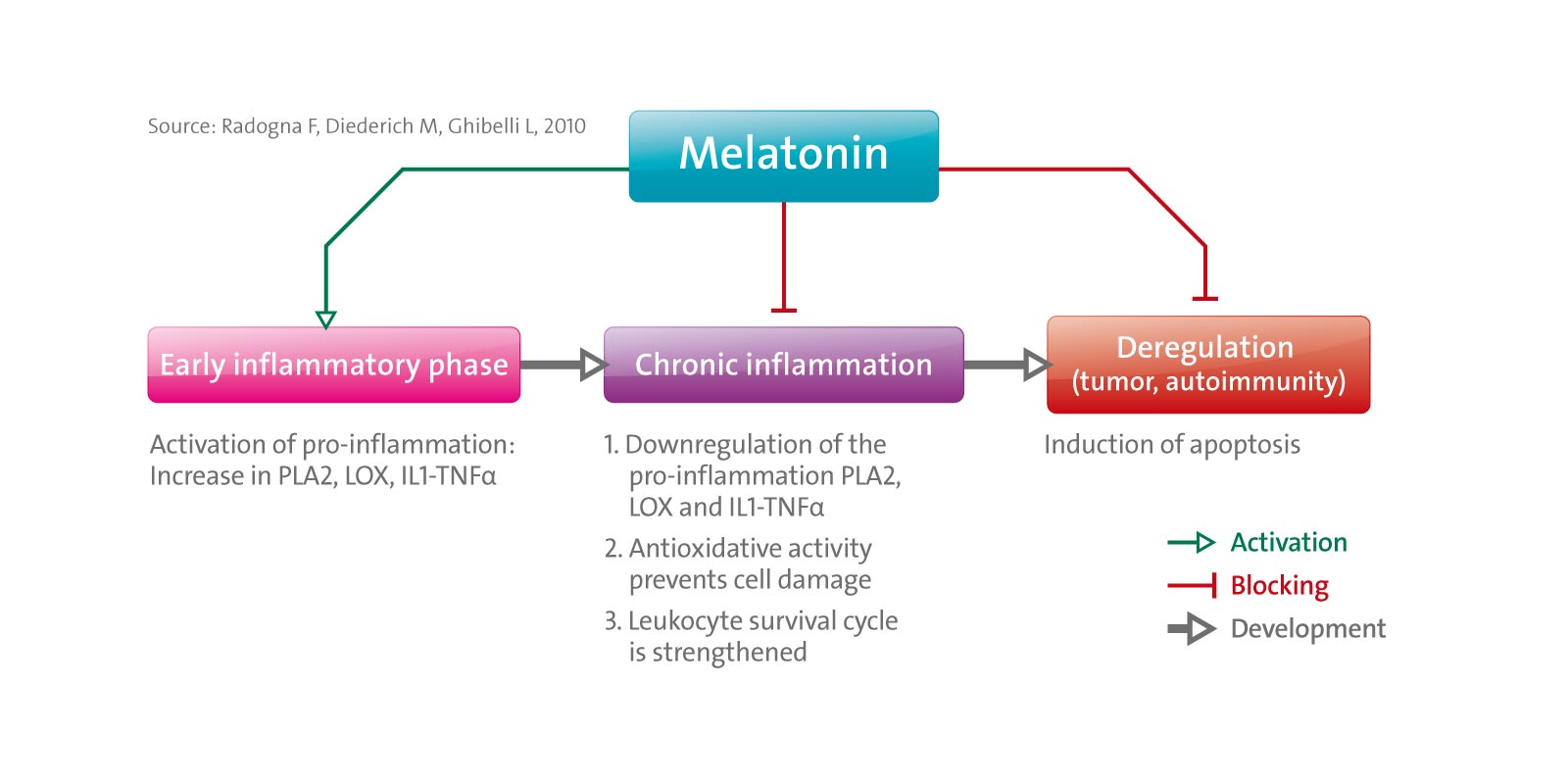Melatonin is a neurohormone produced by the pineal gland that regulates sleep and circadian functions. Melatonin also regulates inflammatory and immune processes acting as both an activator and inhibitor of these responses.
Melatonin demonstrates endocrine, but also paracrine and autocrine effects in the leukocyte compartment: on one side, leukocytes respond to melatonin in a circadian fashion; on the other side, leukocytes are able to synthesize melatonin by themselves.
With its endocrine and paracrine effects, melatonin differentially modulates pro-inflammatory enzymes, controls production of inflammatory mediators such as cytokines and leukotrienes and regulates the lifespan of leukocytes by interfering with apoptotic processes. Moreover, its potent antioxidant ability allows scavenging of oxidative stress in the inflamed tissues.
The interesting timing of pro- and anti-inflammatory effects, such as those affecting lipoxygenase activity, suggests that melatonin might promote early phases of inflammation on one hand and contribute to its attenuation on the other hand, in order to avoid complications of chronic inflammation. This review aims at giving a comprehensive overview of the various inflammatory pathways regulated by this pleiotropic hormone.
